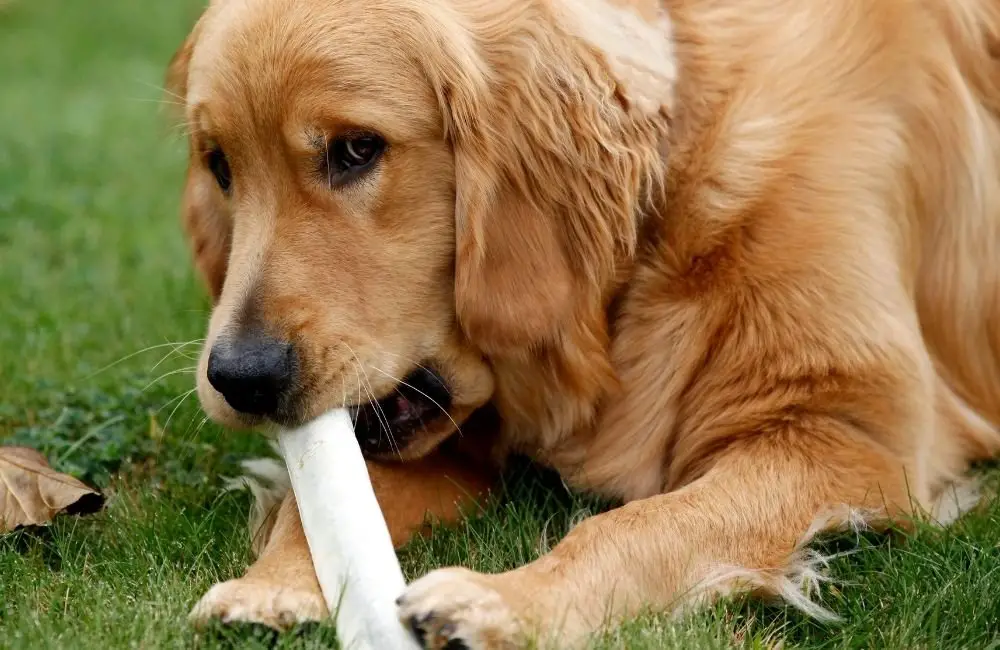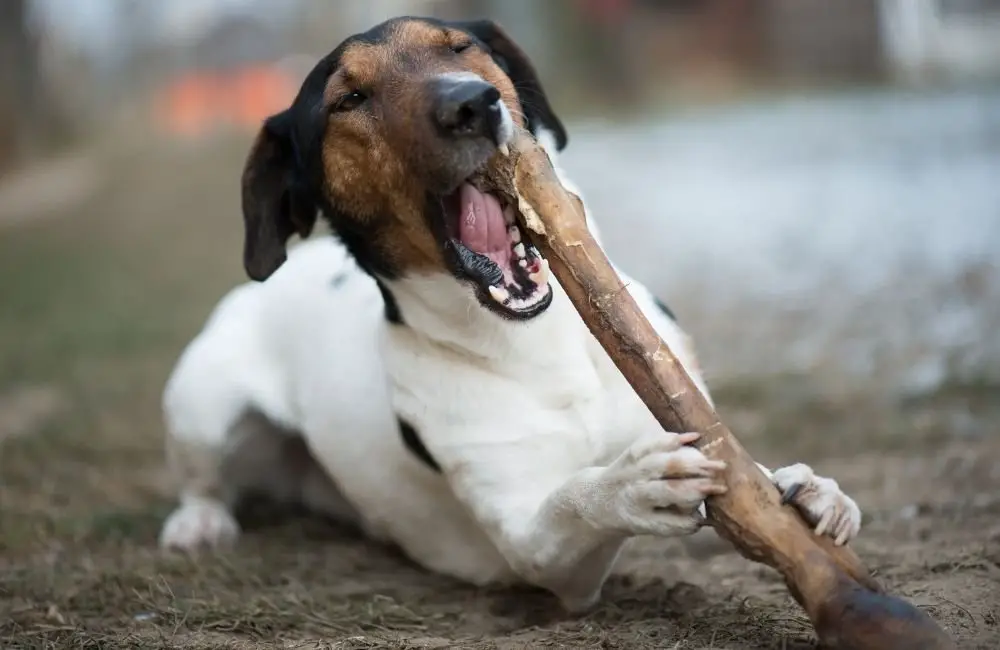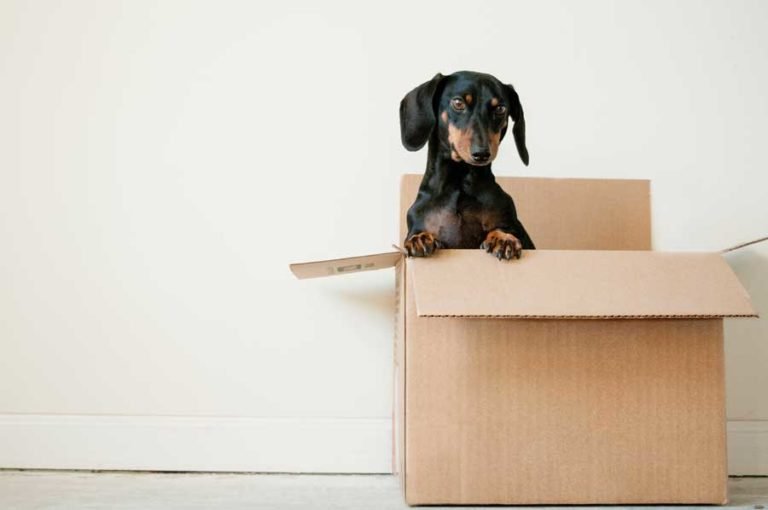Can Dachshunds Chew On Bones? [Which Bones Are Safe!]
Dachshunds, also known as Doxies or Wiener dogs are amazing pups with so much to offer.
Their sausage-like shape, short stature, and vivacious personality are just so endearing, and that could be why they are increasingly becoming one of the sought-after dog breeds by canine lovers around the globe.
And as short as they stand, these pups have an appetite as huge as Texas, with their large and ever-pleading eyes leaving you with almost no other option than tossing them an extra treat.
Now, bones are among your dachshunds’ favorite treats. They love to chew them. I mean, they really love them so much. But are they a healthy treat for them? I did a ton of research to find out.
Can dachshunds chew on bones?
Yes. Doxies can chew on bones. However, not all bones are good for your sausage dog. Some are more likely to splinter into their mouths inviting more trouble than you would ever imagine. Avoid giving your dog pork bones, rib bones, and cooked bones. But that’s not all keep reading to discover more.
Why Do Dachshunds Love To Chew On Bones?
All dogs love to chew. It’s something that any fur parent can confirm. It’s a stage they all have to pass. Talk of bones, carpet, shoes, plastic bottles, upholstery, other pups, socks, chairs, pillows, blah blah blah. The list is endless. Chewing is a dog’s natural way of exploring the surrounding.
When talking about dachshunds, it’s no secret that they are among the most aggressive chewers on the planet. And of course, it’s no surprise at all. What else would you expect from a dog with huge curiosity, a powerful nose, a big appetite, and a stubborn demeanor?
So, what exactly stirs their appetite more when they come along bones? It’s simple. For years, we have known bones to be one of the dog’s best friends. Without your intervention, your doxie can interact with a single bone for hours.
They are never willing to give up on them. And we aren’t against that. After all, where could we ever borrow the famous phrase, “like a dog with a bone”?
Is Giving Your Doxie A Bone Worth It?

Other than satisfying their curiosity, are there any health benefits that dachshunds get from chewing on a bone? Well, this is one of the questions that more than a few dog parents struggle to find answers.
Chewing bones is one way to improve your pup’s dental health. It stimulates the secretion of saliva which in turn contains important enzymes that prevent plaque build-up.
That’s why scientists relate dogs that chew on bones with less likelihood of licking their paws. Also, chewing on bones is a great way to improve the jaw strength of your furry friend. Most of the time dog food is soft and won’t provide enough jaw bone stimulation to your dog.
But other than that, we must acknowledge that bones are very rich in nutrients. Some of these nutrients facilitate digestion and prevent some gastrointestinal issues such as bloat.
What Bones Are Good For Your Dachshund?
It’s your responsibility as a pet parent to ensure that your Wiener dog only takes what is safe for his health. When it comes to bones, you have to be keen on the type you get for your adorable pup.
It makes no sense at all to yield to those pleading eyes knowing very well that you are putting your dog’s life on the line. Your canine doesn’t understand the risk.
Therefore, the ball is always in your court to decide what to give and what to withhold from him. Back to our question- what bones are good for dachshunds? Find out for yourself below.
Raw Bones Versus Cooked Bones
Most veterinarians and professionals will recommend raw meat bones over most other options. Unlike the cooked bones, most raw meat bones don’t splinter easily. They are soft enough to chew and digest. Therefore, they are safer for your dachshund.
Raw bones of chicken, beef, turkey, and lamb are just a few of the options that are good for your pup. They pack higher levels of calcium, phosphorous, and other essential nutrients that your dachshund needs to grow healthy.
But beware, raw bones some times will carry some bacteria that may cause health issues to your dog. Therefore, before you give them to your doxie, be sure to clean them thoroughly.
Also, some of these bones will crack easily. Cases in points are pork bones and rib bones of any animal. Therefore, no matter how your dog seems to enjoy chewing on bones, avoid feeding him these bones.
Natural Bone Chews Versus Synthetic Bone Chews
Another question you are likely to ask yourself as a pet parent is whether to give your dog natural bone chews or synthetic dog bones. The fact is that each of these bones has its advantages and disadvantages.
For instance, dogs tend to love natural bones so much. They have tons of nutrients that are going to benefit your pup.
The other advantage is that they do not contain any added preservatives, making them way safer for your pet’s consumption. Nevertheless, they aren’t the perfect option for heavy chewers. Also, they may cause diarrhea and other conditions.
Synthetic bones on the other side are available in different shapes. They come in different flavors, sizes, and shapes. They are usually low in calories so you don’t have to worry about your doxie becoming overweight.
However, most of these bones have a high likelihood of breaking than natural bone chews. But if you are lucky to get one that is made with the best materials, they can work well for keen chewers.
Is Rawhide Good For Your Doxie?
Rawhide comes from the hide of a cow or other animals. Hides have two layers, the outer tough layer, and the inner soft layer. The outside layer is for making things like shoes, belts, leather sofas, clothes, and other leather-made products. It’s the inner layer is for making rawhides and other dog-unrelated products.
So, is a rawhide safe for your Wiener dog? Some are safe while others aren’t. When making rawhides, the raw materials have to pass through several toxic chemicals.
For a rawhide to be safe for your dog, there should be no traces of these chemicals or other contaminants. Any small amounts of these contaminants may trigger serious irritations in the digestive system.
Hence, whether a rawhide is going to be good for your pet or not will depend on whether the manufacturer has some good quality control measures in place. That’s why most professionals will advise you to buy rawhides from manufacturers with a solid reputation.
But how exactly do rawhides benefit the dog? It’s all about their dental health. Chewing rawhides stimulates the production of saliva.
The saliva softens the rawhide making it easy to wrap around their teeth when chewing, an action that helps clear any plaque from their teeth. This is one of the many benefits your dog gets from chewing rawhides.
So, are they worth paying for? You may ask. The truth is that doxies love rawhides. However, we all understand the risks that they pose. But again, it’s good to understand that life is all about taking risks.
Hence, the best thing is to examine whether the benefits are worth taking the risk. Do the advantages outweigh the disadvantages? To me, yes they do- and with a valid reason. The benefits of chewing rawhide are so numerous while the risks are very minimal.
Things to Keep In Mind When Giving Your Dog A Bone
- If you are giving your dog a bone for the first time, begin with a small size and then increase the size with time to what works best for his jaw size.
- Always be available to supervise your dog when chewing on bones. Any bone can turn to a choking hazard when your pooch swallows it without thorough chewing.
- Bones are never a supplement for food. However, when feeding your canine with bones rich in fat, let’s say like those with marrows, be sure to adjust the dog’s diet appropriately. This way, you will avoid giving him more fat than necessary. But if your dog needs a low-fat food, it’s safer to try other bones.
- Always give the bone after a meal. When your dog is hungry, he may be tempted to chew and swallow the bone in large chunks. We all know the potential consequences.
- Ensure that the bone is larger than your dog’s muzzle. You want to avoid the chances of your dog swallowing the bone. And one way of reducing the possibility is by giving him a larger bone than his muzzle. One that’s as large as his head is a good size for him.
- Keep the interaction short. One thing about dachshunds is that they aren’t easy to give up. Chewing bones for long can increase the chances of injury, even for those that aren’t likely to splinter. Therefore, be available to intervene when necessary.
- Never feed your dog bones that are easy to crack. Cooked bones, pork bones, and rib bones are among the options that you should avoid. The shards can cause issues like tooth breakage, injury in the tongue or mouth, intestinal blockage, choking, severe constipation, and more.
Conclusion
Bones are among the tastiest treats you can ever offer to your dachshund. However, it’s essential to understand that not all bones are good for your lovely pup. That’s why you should know clearly what to give him and what not to. Of course, we don’t guarantee that there is a particular bone that won’t splinter, because they don’t exist.
However, some have a high likelihood of cracking than others. Hence, provided that you get the right bone and follow to the letter the safety guidelines provided in this article, there are very minimal to no chances of hazards.







